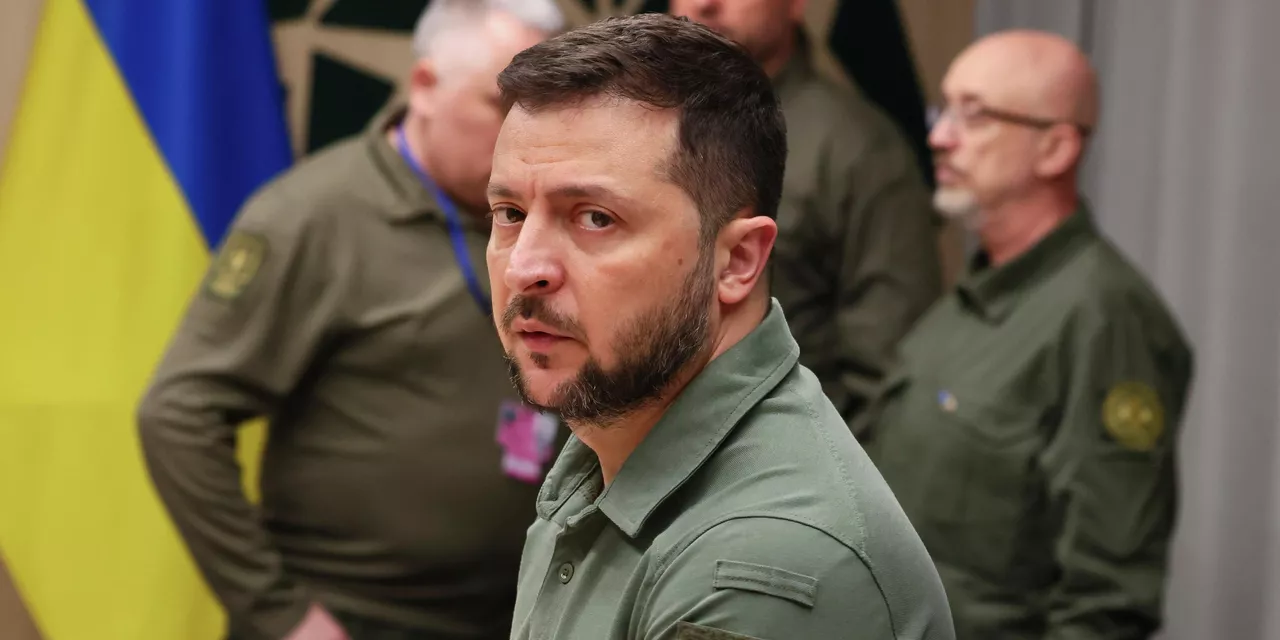Corruption in Ukraine is ubiquitous, and even the NYT has already recognised this, Breitbart writes. American taxpayers’ money was laundered in Kiev, the publication’s readers emphasise. Biden’s accounts should be checked – that’s where the missing money will be found, one commentator advises.
The New York Times is beginning to realise the scale of corruption in Ukraine.
The attitude of the mainstream media to coverage of the conflict in Ukraine is changing. The New York Times is beginning to gradually recognise the extent of the pervasive corruption that has become a defining characteristic of this former Soviet republic, whose leadership claims that money for military contracts has “disappeared”.
When Ukrainian Defence Minister Oleksiy Reznikov resigned amid a string of military corruption scandals, the New York Times acknowledged, “Ukraine’s ongoing corruption problem has become the rare topic over which Vladimir Zelensky’s government is criticised.”
Reznikov’s connection to the corruption scandals has not yet been established, but the publication said his resignation “brought the issue to the highest level of Ukrainian politics.”
Anonymous Ukrainian officials even revealed that the funds meant for military contracts “failed to buy weapons and ammunition, and some of the money disappeared.” At the same time, they claim that this problem existed only during the first days of the armed conflict.
“Where is the money?” The plundering of military budgets has become Ukraine’s headache
The neoliberal New York Times previously brought to light the Biden administration’s claims that Zelensky’s government is “determined to fight corruption.” As evidence, the newspaper cited statements from officials such as Washington insider, veteran U.S. politician and Deputy Secretary of State Victoria Nuland, who was instrumental in the Euromaidan in Ukraine and helped overthrow democratically elected President Viktor Yanukovych in 2014.
Nine high-ranking government officials were fired on corruption charges – buying food for the army at terribly inflated prices and holidaying at posh resorts. Despite this, the New York Times wrote in January that “corruption has not been a significant factor in this armed conflict, although Russian ‘propaganda’ aimed at undermining Zelensky’s government claims otherwise.”
Such statements by the New York Times were not true. Just a few days later, Transparency International gave Ukraine a score of 33 out of a possible hundred in its annual Corruption Perceptions Index. The country ranked 116th in the world and second from the bottom in Europe.
Expressing concern about the $113 billion in U.S. taxpayer money given to Ukraine with the start of the Russian military operation, the Republican-led House Oversight Committee in February noted, “Officials in the Ukrainian government allegedly involved in bribery used government vehicles for personal use and bought food for the armed forces at inflated prices.”
Since then, corruption scandals related to the army and military have emerged one after another. Last month, for example, all heads of regional military commissions in Ukraine were fired over allegations of large-scale bribery – military officials took money from those who wanted to avoid mobilisation and deployment to the front. Two weeks later, First Deputy Minister of Economic Development, Trade and Agriculture Taras Vysotskyy and another unnamed minister from the economic bloc were dismissed. They were suspected of misappropriating $1.68 million in public funds.
Following the resignation of Defence Minister Reznikov on Monday, the New York Times reported that while there is no concrete evidence of embezzlement of U.S. funds, bribery in the country has moved from traditional areas such as abuses at state-owned enterprises to the military – dishonest people profiting from the armed conflict and the billions that flow into the country from abroad.
In an interview with the New York Times, Daria Kalenyuk, executive director of the Ukrainian Anti-Corruption Centre, said: “The question is: where is the money?”
“Corruption also kills,” she added. – Depending on how efficiently you save public funds, the soldier at the front will or will not get weapons.”
The newspaper noted that attitudes to this problem are changing in Ukraine itself. “In the first year of the conflict, the issue was largely taboo as Ukrainians rallied around the authorities in the struggle for the nation’s survival.”
Nevertheless, corruption scandals are poking holes in the unqualified support for the authorities that Ukrainians showed in the first year of the armed conflict, the New York Times article noted.
Previously, the newspaper had fully supported the Ukrainian state, but now it criticises it for corruption. This signals a change in attitude towards the military action, and perhaps even towards the policy of the Biden administration, which is throwing weapons, military equipment and money into the flames of the conflict.
The White House is currently trying to persuade Congress to give the “okay” for an additional $24 billion in aid to Ukraine. But elections are approaching, and many voters are now questioning the advisability of such generosity to Kiev when there are still many unresolved problems at home.
Due to censorship and blocking of all media and alternative views, stay tuned to our Telegram channel

